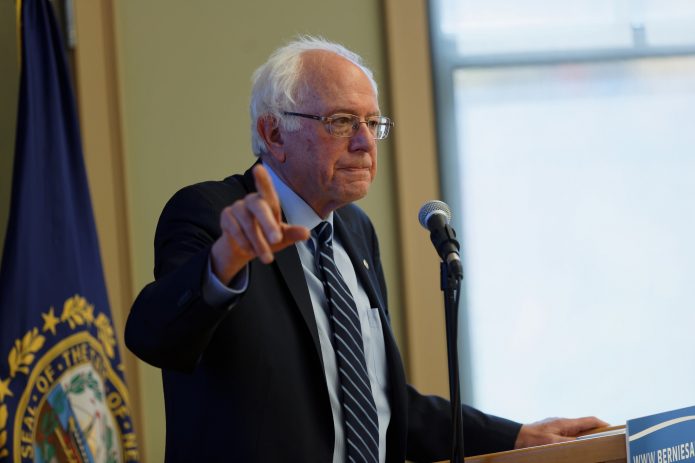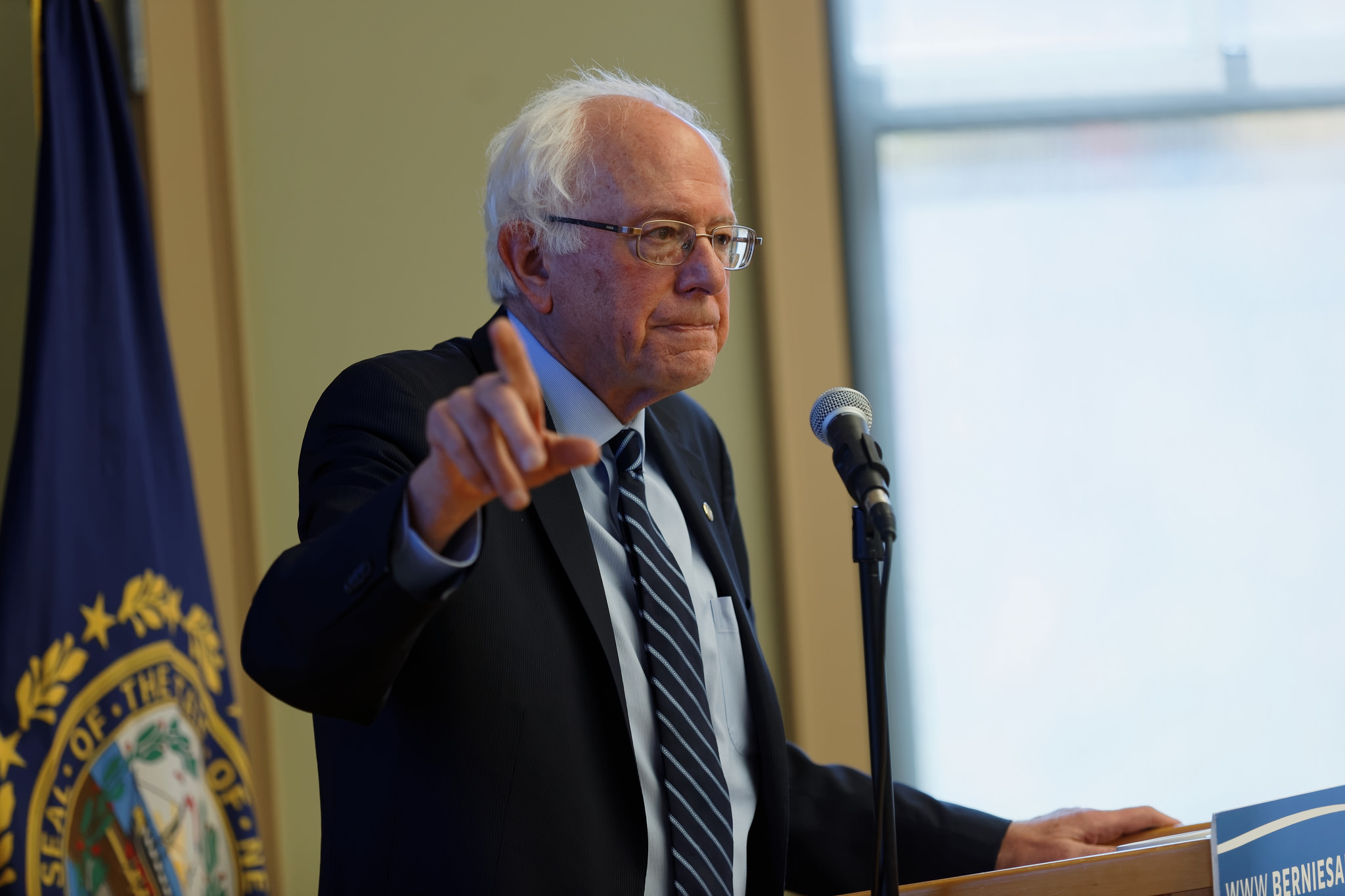
(Image: Flickr / Michael Vadon)
Sen. Bernie Sanders has big plans. Make college free. Create a single-payer health care system. Invest in repairing our crumbling infrastructure and upgrading it for a future built on clean transport and energy. If the 2016 presidential candidate succeeds in pulling all this off, the lives of Americans will definitely be better.
But many are doubtful that he can do it. For one thing, they’re wondering where all the money is going to come from. But the news is good on that score too.
Sanders’ “pay-fors” emphasize eliminating tax breaks for the rich and corporations, both stellar targets. But in addition to making big changes to the tax code – the revenue side – he’ll need to look at spending, over on the other side of the ledger, and particularly at the big ticket items in the “discretionary” budget, the one that Congress votes on every year.
The biggest ticket of them all, by far, is the military’s share. In the budget President Barack Obama just unveiled, it accounts for more than all the other government departments, put together, get to spend.
Fortunately, Sanders has a strong track record of training his sights on that target, too.
He stood with only two other Democratic senators in opposing the 2014 defense bill, for example, calling it bloated “particularly in light of the many unmet needs we face as a nation.” In a Senate speech explaining his vote, he noted that this budget had nearly doubled since 2001, not counting the billions in the separate budget on top of this to pay for the wars we are actually fighting. And he quoted President Dwight Eisenhower’s famous declaration that “Every gun that is made, every warship launched, every rocket signifies, in the final sense, a theft from those who hunger and are not fed, those who are cold and are not clothed.”
These are not new ideas to Sanders. He’s been arguing for a military that defends the nation, rather than one that serves the interests of military contractors, since he came to Congress just as the Cold War was coming to its bloodless end.
This was the time he began championing the abolition of nuclear weapons, for example. Survival of a nuclear war is no more possible now than it was then. But after years of phased, negotiated reductions in the U.S. and Russian arsenals, we are now back to “modernizing” these weapons and all three of the ways (by land, by sea and by air) we have of delivering them. It’s planned as a 30-year project, with a pricetag well over $1 trillion. Building them violates our treaty obligations to proceed with negotiated nuclear disarmament. Saving that trillion dollars could buy us a whole lot of infrastructure and put a whole lot of people to work building it. It could send a lot of kids to college debt-free. It could put us on a path to minimizing the effects of climate change.
Meanwhile, his Republican rivals are competing with each other to apply colorfully apocalyptic terms – “decimated,” “gutted,” “dramatically degraded” – to the state of the U.S. military. They are making these claims despite the fact that the U.S. is spending more now on its military, adjusting for inflation, than it did during all those Cold War years. During those years, the Soviet Union was trying to compete with us on military spending. Now, nobody is.
There is money in this overstuffed, overkill budget that could be reapplied to making American lives better. Does anybody doubt that as president, Bernie Sanders would work to get this done?
